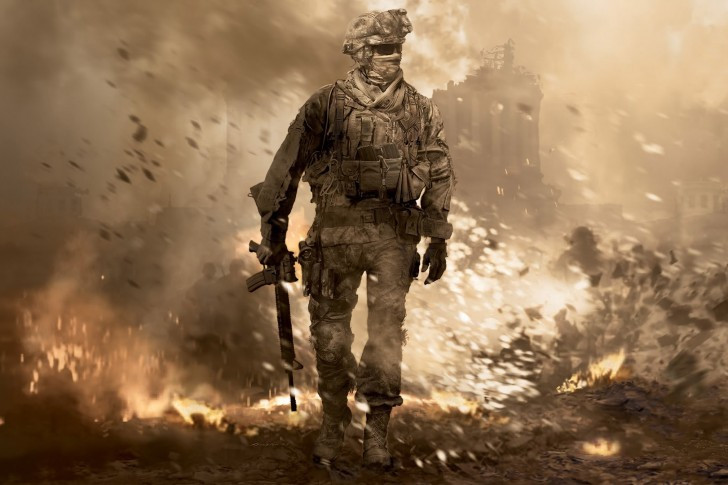Call of Duty is not Art but I Love it [BLOG]

There's a canon of videogames that we're happy to talk about as art, games like Gone Home, BioShock and Passage. What all these games have in common is an ability, or propensity, to achieve artistic things through means unique to videogaming as a form. Gone Home and BioShock for example tell a story through player interaction - the more players engage with those games, and explore their mechanics and levels, the more they glean about their narratives.
We want games to operate on their own terms. If I think about early art films, films like Citizen Kane and Battleship Potemkin, then they are movies that, in some way, exploit the idiosyncrasies of the medium for artistic gain.
Rather than use dialogue, a hangover from theatre, Citizen Kane explores its characters via the deep focus of the film camera, and objects placed in the background. Potemkin on the other hand is a masterpiece of editing, wherein abstract images are given meaning through their juxtaposition with other images, something that's only achievable with a post-production editing suite.
Art films, and now art games, are exemplary of something that can only be achieved through the chosen medium. The whirling, malleable narrative of BioShock for example could never be possible in cinema.
So this is why, at least in theory, I love Call of Duty.
It's politics are pig ugly. Presumably made by people who've watch too much 24, Call of Duty emblazons the dangerous idea that military intervention is always justifiable. It's also, you might argue, responsible for a kind of homogenising of modern games. Since Modern Warfare went stratospheric, everyone wants to be like CoD, and as a result there's been a ruck of unimaginative war shooters, enough to make you doubt whether AAA games are artistic at all.
But despite these glaring flaws, and smaller ones like shoddy dialogue and repetitive action, Call of Duty remains a perfect example of what videogames, and videogames alone, can achieve.
I liken it the 8-bit classics of the 1980s. If you showed Dig-Dug to someone with no interest in games, thanks to its pixellated graphics and 2D perspective, they could still instantly recognise it as a videogame. Same goes for Call of Duty. It's distinctly "of games".
Wanton indulgence
With all its guns, explosions and flashing point counters, it clearly belongs to the form of videogames. I hate to admit it, but part of what makes games stand out as a cultural form is their ability to be stupid - to be goofy, mindlessly violent and escapist.
Those aren't the finest things games have to offer, and I'm relieved that other developers are experimenting with the higher things games can achieve. But I respect Call of Duty for so wantonly indulging in the peculiarities of the medium, for exploring and exaggerating, with full heart, one aspect of what games can be.
Certainly, Call of Duty has contributed to today's myopic publishing model, where only games that tick certain boxes are allocated big funding. And certainly, it's indefensible as a piece of writing - it has an on-going story where the rich, American men are all good and the poor, brown people are always the enemy.
But Call of Duty continues to plunder gaming's excesses. Interactive killing might be a regrettable aspect of this medium, but at least its an idiosyncrasy - at least its something that videogames alone have contributed to popular culture. In that sense, CoD celebrates games as a form. It's exemplary of what videogames are and what they offer that other media cannot.
I'm not going to end this by saying Call of Duty is art because, well, that would be mental. But it certainly has something - it does things that only games can do. And that, I think, is worth noting.
© Copyright IBTimes 2025. All rights reserved.






















